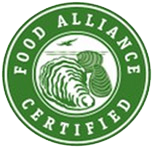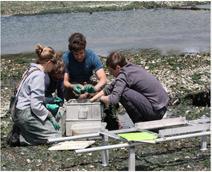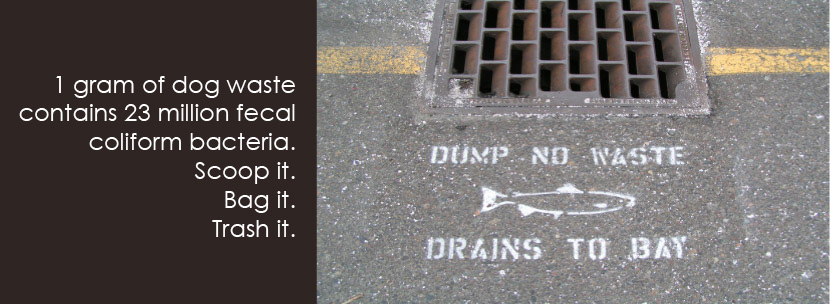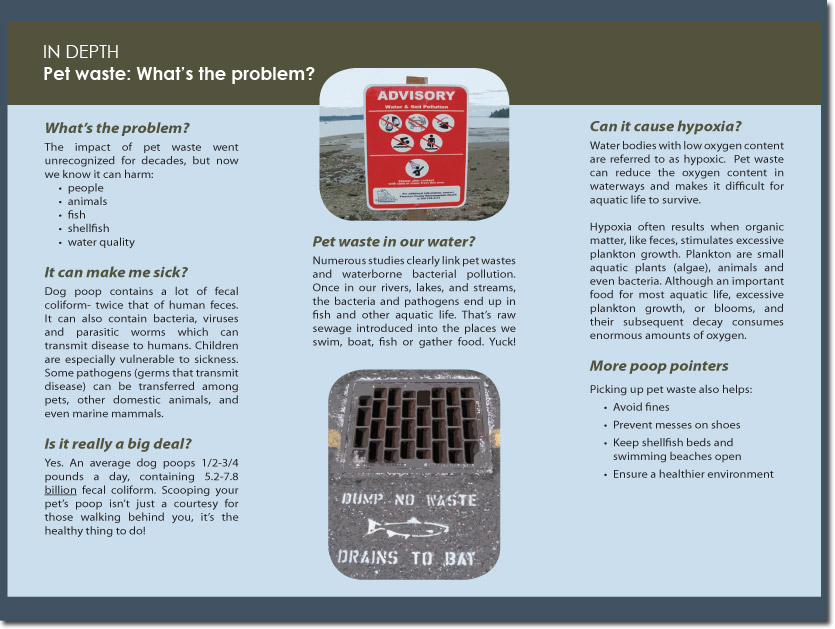Shellfish Research and Information
Services for the U.S. West Coast
Explore the Tideflats

On the Farm

Shellfish Restoration

Recreational Shellfish

SUSTAINABILITY CERTIFICATION |

Sustainability Standards for Shellfish?
Food Alliance certification for farmed shellfish provides a trusted and independent third-party audit process for certifying socially and environmentally responsible management practices in shellfish farming operations and and handling facilities.
Learn More >>
|
STUDENT OPPORTUNITIES |

Internships with PSI
Intern or volunteer on one of PSI's research projects or outreach campaigns.
|
|
Keep it Clean
There are a number of things you can do to imporve water quality in your area.


|
Clean up after your dog
Scoop It, Bag It, and Trash It. A day’s waste from one large dog can contain 7.8 billion fecal coliform bacteria, enough to close 15 acres of shellfish beds. Keeping dog waste off the ground keeps it out of water and off shoes!
|
|

|
Minimize the use of fertilizers, pesticides and herbicides
These substances make their way into stormwater and groundwater. If you use these chemicals, follow directions, use sparingly, and don’t apply before a rainstorm. Consider organic alternatives.
|
|

|
Maintain your vehicles and consider washing your car at a commercial car wash
Fix oil/coolant leaks and place a drip pan (or flattened sheet of cardboard) under your car. NEVER pour these substances down a stormdrain. If you wash your car at home, wash it on your lawn.
|
|

|
Properly maintain your septic system
Regular maintenance prevents both costly repairs and pollution of surface and groundwater. Have your system inspected and pumped every 3-5 years depending on the number of users.
|
|

|
Reduce impervious surfaces and encourage vegetated areas on your property
A typical city block generates more than 5 times more stormwater runoff than a woodland area of the same size. Encouraging infiltration purifies water and prevents contaminated runoff from reaching waterways and ultimately Puget Sound.
|
|

|











